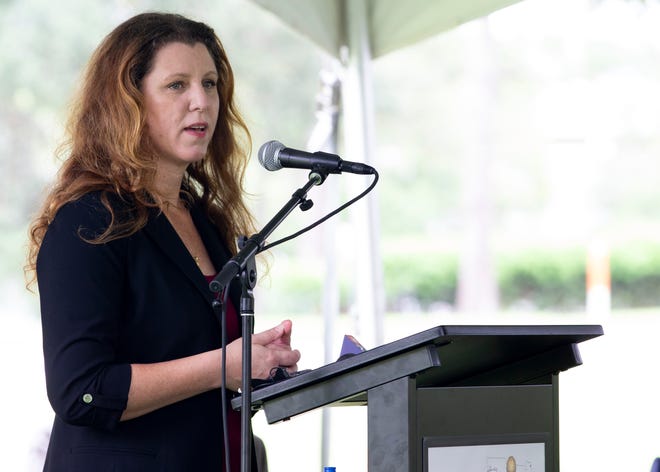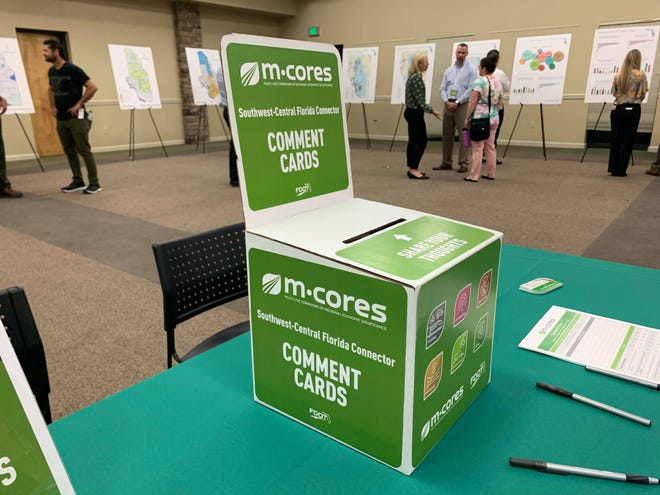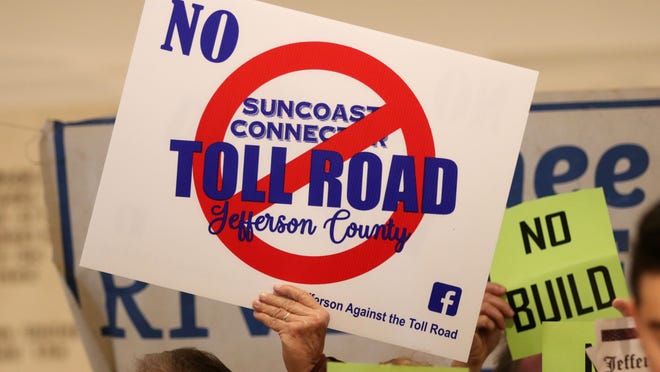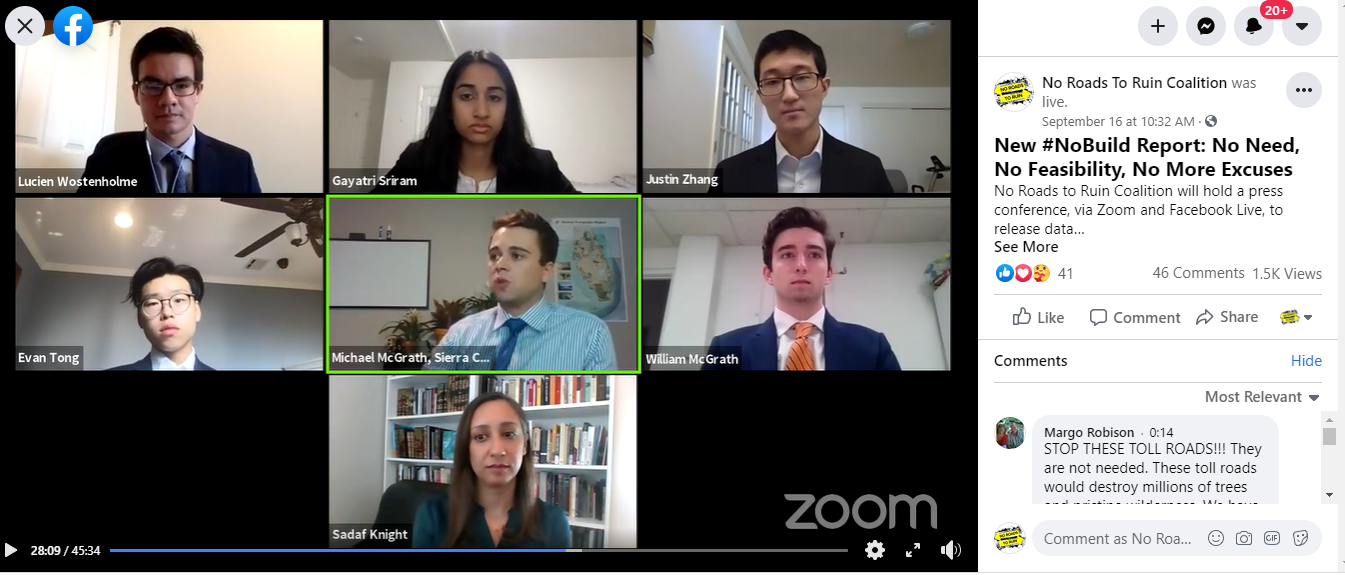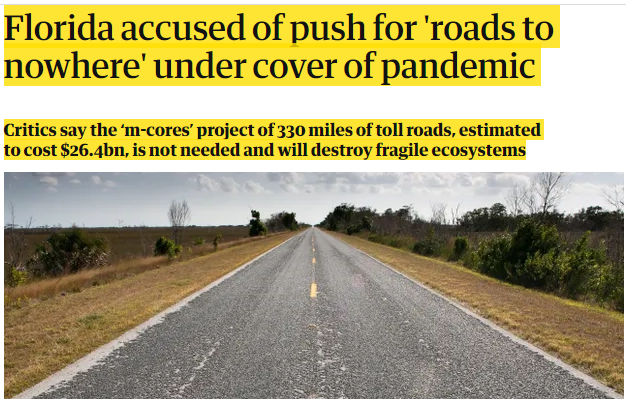Thousands of public comments show overwhelming opposition to M-CORES toll-road projects
Thousands of public comments show overwhelming opposition to M-CORES toll-road projects
By Laura Cassels | Florida Phoenix
More than 90 percent of people who commented on proposed construction of three massive toll roads through rural Florida oppose the plan, according to an analysis of the nearly 10,000 comments gleaned from public records…“The people who are against the roads talk about protecting our water and our wild places, habitats for panthers, black bears and numerous birds. They talk about protecting our farms, ranches and our rural way of life,” said Kim Wheeler, founder of Rural Levy Says No Toll Roads.
Task Force could not agree on need for a giant toll road
Task Force could not agree on need for a giant toll road | By Betsy Calvert | Port Charlotte Sun
It wasn’t a ringing endorsement.
More than 100 task force members, including three from Charlotte County, will meet one more time in October to debate a draft final report on the 330-mile toll road proposed from Collier County to the Georgia border.
The task force for the largest of the three segments, from Collier to Polk counties, will host its final meeting from 9 a.m. to 5 p.m. Oct. 19 at the Tampa Convention Center. It could be the task force’s first in-person meeting after months of virtual meetings its 47 members have called frustrating.
The 30-page reports for the southwest section begins with some uncertainty.
“(The) Task Force was not able to fully address its charge of evaluating the need for and impacts of the Southwest Central Florida Corridor,” the report states on page 2, blaming limited data. “The Task Force did not reach a conclusion ... that there is a specific need for a completely new greenfield corridor on land through the study area to achieve the statutory purpose.”
Report: Polk-to-Collier toll road shouldn’t plow new path
Report: Polk-to-Collier toll road shouldn’t plow new path By Gary White | The Ledger
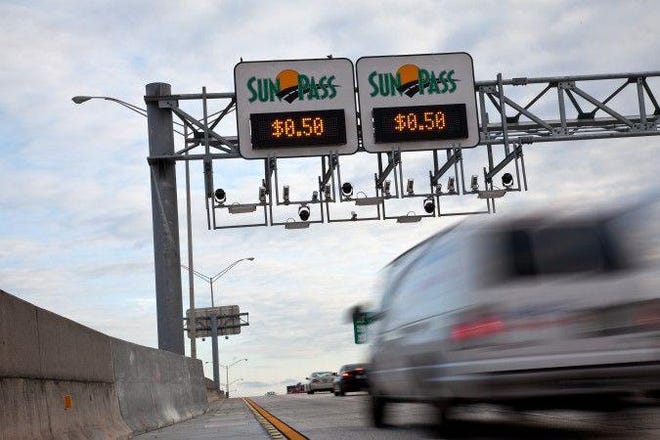
LAKELAND--During eight meetings over more than a year, discussions of a toll road terminating in Polk County have focused as much on where it will not go as where it might go.
Environmentalists say new toll road would threaten Florida panthers
Tampa Bay Times | Environmentalists say new toll road would threaten Florida panthers
By Zachary T. Sampson
A major toll road project would worsen an already bad situation for endangered Florida panthers, according to a report released Tuesday by The Nature Conservancy in Florida, which reasserts environmentalists' opposition to the highway expansion.
Calling the road an “existential threat” to panthers, Temperince Morgan, executive director of The Nature Conservancy in Florida, said in a statement Tuesday: “We continue to provide science-based input to the toll road task force, in an effort to identify the potential catastrophic impacts to nature that this road could have.”
“Wildlife crossings certainly are a tool for reducing the impact of roads, but the bigger loss we think would be from loss of habitat,” said Janet Bowman, senior policy advisor for The Nature Conservancy in Florida. “Wildlife crossings don’t prevent that.”
Proposed Toll Road Would Harm Florida Panthers, Report Says
Proposed Toll Road Would Harm Florida Panthers, Report Says
By Jessica Meszaros
WUSF Tampa, WJCT Jacksonville

A study says the road planned between Polk and Collier counties would undo all the progress that has been made in the past 25 years for endangered Florida panthers by state and federal agencies.
The Nature Conservancy, an advocacy group, commissioned the report, which was authored by former Florida Fish and Wildlife Conservation Commission wildlife ecologist Randy Kautz.
Still no answers from task forces looking into proposed Florida toll roads
Still no answers from task forces looking into proposed Florida toll roads
By Jeffrey Schweers
Tallahassee DemocratMore than a year after convening, the three toll road task forces charged by the Florida Legislature to evaluate and make recommendations on the state’s most ambitious public works project in decades still have no answers to fundamental questions.
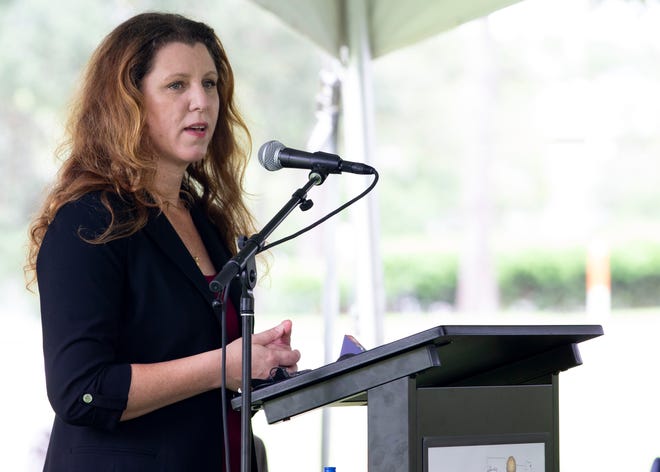
"For a lot of us sitting on the task force we feel like we should have looked at the transportation needs in general, and all of these other aspirational targets, broadband, workforce, things like that ... and then looked for solutions," Dozier said. "I don't question the long-term planning but I question the suggestion that a toll road is needed before we go through this exercise."
Analysis: 3 planned toll roads, including project from Polk to Collier, not fiscally feasible
Analysis: 3 planned toll roads, including project from Polk to Collier, not fiscally feasible
By Gary White | The Ledger
The analysis included 500 simulations for the three roads, using a range of variables for each, and found none met a key financial marker.
“M-CORES is a financially risky project with a significant price tag and little data demonstrating a true transportation need,” the Cornell analysis said. “Furthermore, the proposed corridors run through highly sensitive environmental areas, run the risk of encouraging sprawl in communities that do not want it, and during COVID-19 have reduced demand.”
Naples Daily News | New study refutes benefits of 3 proposed toll roads in Florida
New study refutes benefits of 3 proposed toll roads in Florida
By Karl Schneider
Naples Daily News
Cornell Consulting, a student-run group out of Cornell University, concluded the Multi-use Corridors of Regional Economic Significance, known as M-CORES, will not benefit hurricane evacuations, traffic congestion or broadband access. The group also found the toll road project would create negative economic returns.
“We can summarize this as a gross misuse of funds that will cause a financial strain for (the Florida Department of Transportation),” said William McGrath of Cornell Consulting.
FDOT lists a myriad of potential benefits M-CORES could provide on its website, and more efficient hurricane evacuations is listed at the top. The consulting group, however, concluded that using contraflows, or opening all highway lanes to move away from a hurricane’s path, would be a better option if done efficiently.
“The premise that M-CORES will reduce congestion and aide in evacuation ignores quicker and cheaper alternatives,” consultant Justin Zhang said. “What we found was the efficiency of contraflows is really dependent on the number of initiation and termination points. And in the past, Florida hasn't really been using those points efficiently.”
Aerial access would also reduce any impacts to Florida’s wetlands and waterflow areas, consultant Gayatri Sriram said. These rural communities rely on above-ground power lines for electricity, and attaching a fiber optic cable to existing conduits could be the easier option.
“If Florida wants to improve access to data, I say go for it, but don’t be foolish,” she said. “There is a cheaper, eco-friendly option to deploy broadband and improve local economies.”
FDOT FAILS TO PROVIDE CRITICAL M-CORES DETAILS: Cornell Consulting Fills the Void
September 16, 2020
Contacts: Michael McGrath, michael.mcgrath@sierraclub.org
Julianne Thomas, JulianneT@conservancy.org, 239-293-7460
Ryan Smart, smart@floridaspringscouncil.
** PRESS RELEASE**
FDOT FAILS TO PROVIDE CRITICAL M-CORES DETAILS: Cornell Consulting Fills the Void
FT. MYERS -- A collaboration between the No Roads to Ruin Coalition Steering Committee and Cornell Consulting, a student-run management consulting firm and the leading consulting organization at Cornell University, resulted in a series of three new policy reports authored by Cornell Consulting analysts and released today, that answer questions relating to the fiscal feasibility (or lack thereof), economic and environmental impacts, traffic congestion, and hurricane evacuation issues the M-CORES (Multi-use Corridors of Regional Economic Significance) project has raised but have remained unanswered by the Florida Department of Transportation (FDOT).
At a virtual press conference, Michael McGrath, Sierra Club Organizing Representative, joined Sadaf Knight, Florida Policy Institute Chief Executive Officer and Cornell Consulting analysts Gayatri Sriram, Justin Zhang, William McGrath, Evan Tong, and Lucien Wostenholme to summarize the report findings — which include alternative solutions independent of road construction. Julianne Thomas, Conservancy of Southwest Florida Senior Environmental Planning Specialist, joined the panel to answer questions from both the press and the public. Over 40 “No Build” activists from around the state joined the event via Facebook Live and Zoom.
The bottom line that emerged from Cornell Consulting’s analysis is that M-CORES is infeasible, creates negative returns, and therefore fails to meet its goals. However, alternative strategies could achieve success.
Cornell Consulting’s data-driven analysis fills the void left by FDOT and the failed M-CORES Task Force processes and offers further support for the “No Build” option that has been demanded by the public since day one of the series of task force meetings which began in August 2019. M-CORES task force members have requested, repeatedly, that the “No Build” option be discussed in detail but FDOT has ignored those requests.
Sadaf Knight, Florida Policy Institute Chief Executive Officer stated: “The revenue needed to fund this project — $1.7 billion in state funding and total construction costs of $10.3 billion — should instead be used to bolster the state budget and preserve public services. This is especially true given that the analysis performed by Cornell Consulting found that the M-CORES project will fail to deliver on its promised outcomes, and that it will be fiscally unsound and cause environmental harm.” See full statement here: https://drive.google.com/file/
The three reports and accompanying slide decks have been sent to the members of all three task forces and FDOT staff.
Go here for links to all three reports and the full array of slides produced by Cornell Consulting: https://noroadstoruin.org/
Go here for Zoom recording:
https://bit.ly/32AmQ8N
Go here for entire Facebook Live event: https://www.facebook.com/
BACKGROUND: Since launching the task force process in August 2019, the No Roads to Ruin Coalition (NRTR) has played a key role in public outreach and government accountability. The toll road task forces are expected to release a final report to the Governor, Legislature, and FDOT by Nov. 15, 2020. The NRTR coalition recommends the ‘No Build’ option. Go to https://noroadstoruin.org/ for more information on the 95 coalition partners and their cause.
###
The Guardian | Florida accused of push for ‘roads to nowhere’ under cover of pandemic
The Guardian | Florida accused of push for ‘roads to nowhere’ under cover of pandemic
Opponents of Florida’s largest highway construction project in decades say officials are exploiting the coronavirus pandemic to advance three new unwanted toll roads that would destroy more than 50,000 acres of rural landscape and pave hundreds of miles through ecologically fragile wetlands and wildlife corridors.
A diverse coalition of opposition groups fighting the state’s so-called m-cores project insists the 330 miles of new highways planned for south-west, central and north Florida at an estimated cost of $26.4bn are not needed, and wanted the process halted at least until in-person public hearings could resume to evaluate the proposals.
“If there’s no demonstrated need, no demonstrated economic or environmental feasibility, a threat to agricultural production, threats to wildlife and water resources, a threat to Florida’s iconic small-town character, you pile these threats one on top of another and it’s common sense there’s overwhelming opposition,” Cris Costello (Sierra Club) said.

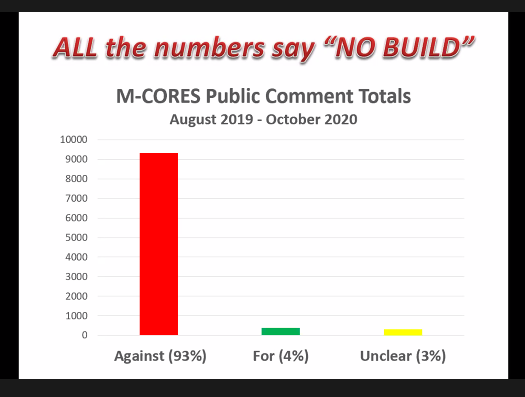
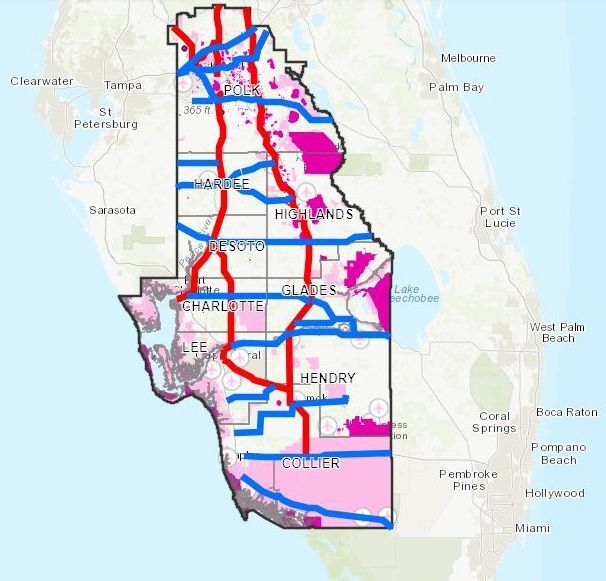

![[object Object]](https://cloudfront-us-east-1.images.arcpublishing.com/tbt/KY4MHALOVBBUHHTM575ZLLUUHI.JPG)

